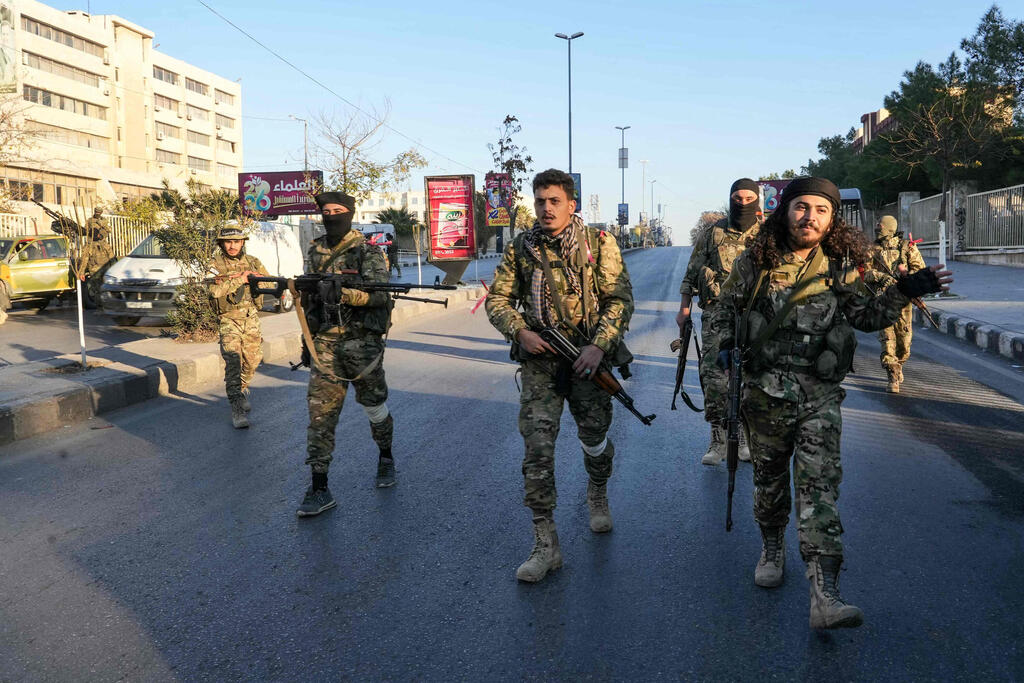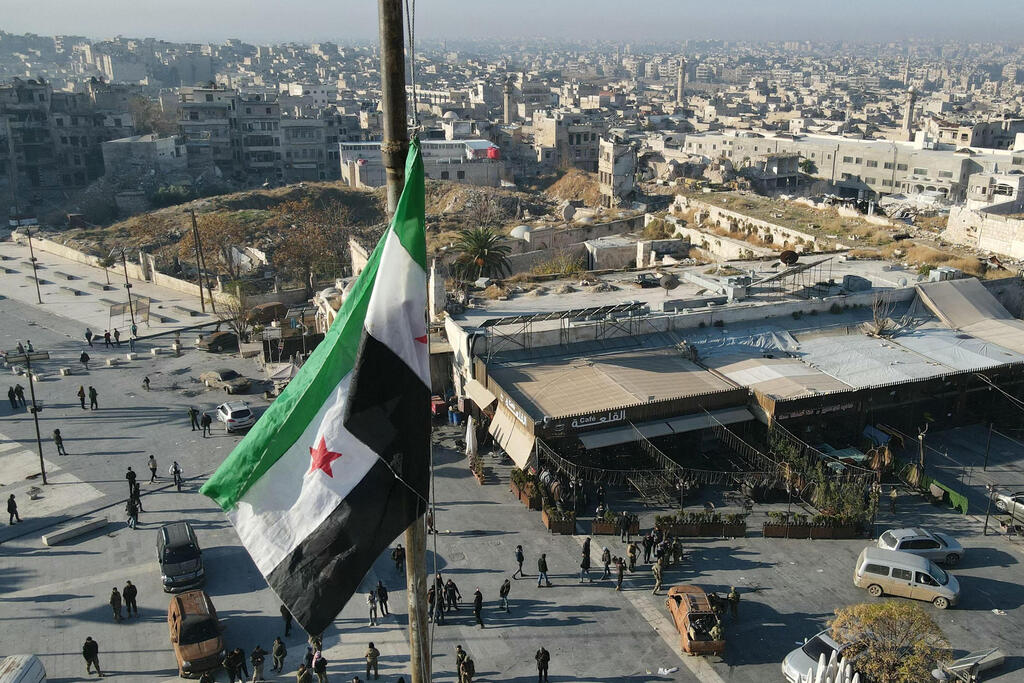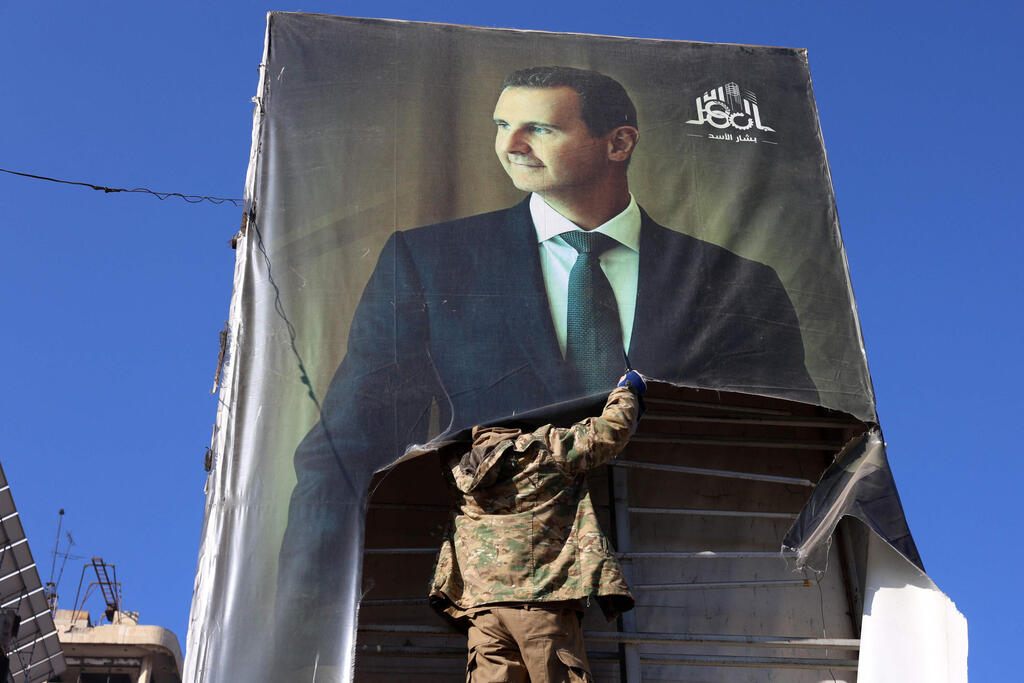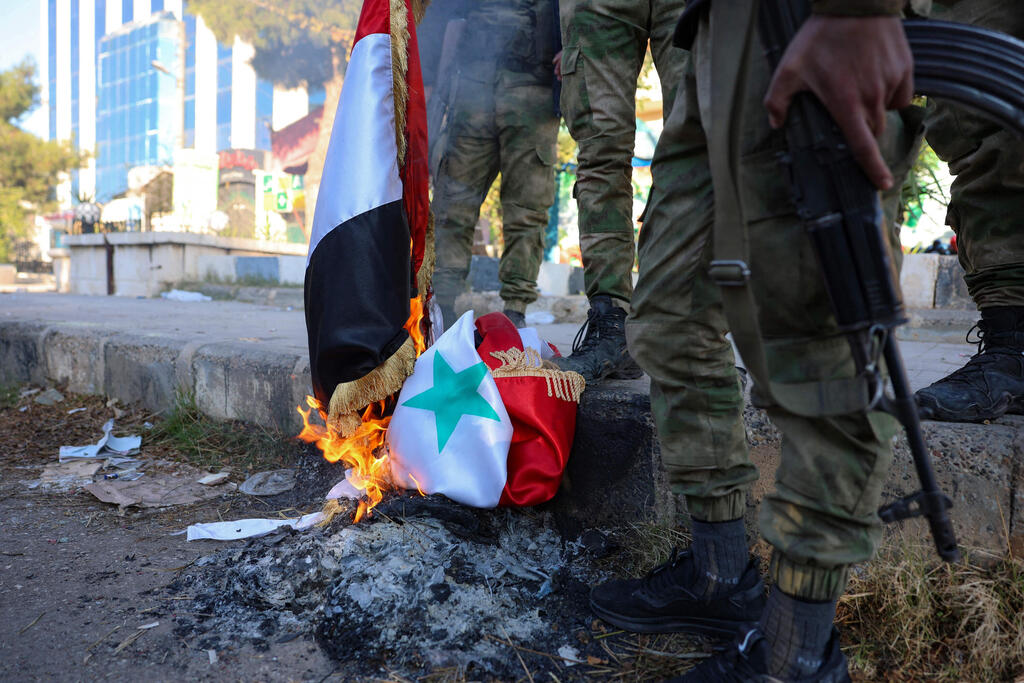Rebel forces in Syria claimed to have captured Aleppo International Airport on Saturday afternoon, marking another major gain for opponents to the regime of Syrian President Bashar al-Assad in the country's second-largest city.
Earlier, the Syrian regime had suspended all flights and closed the airport. The rebels, reporting dramatic progress, said they now control more than half of Aleppo.
The Syrian and Russian air forces responded with heavy airstrikes targeting rebel positions in Aleppo, including those of the jihadist group Hayat Tahrir al-Sham (HTS), according to the Syrian Observatory for Human Rights, a UK-based opposition war monitor. The Observatory reported that the death toll in the clashes has risen to 327, including Ahmed Khader Ali, a senior security official for the Assad regime in Aleppo.
The rebels also announced a new front in the Hama region, claiming to have captured six villages. Several reports in Syria suggested that army forces retreated from Hama city in the northwest toward Homs. However, a Syrian military source denied the reports, calling them "fabrications by platforms linked to armed terrorist organizations."
Rebel forces have also been moving southward in the Idlib region, reportedly seizing the city of Maarat al-Numan and now control the entire Idlib Governorate, according to rebel sources cited by Reuters.
The Syrian Defense Ministry acknowledged that rebels had entered significant portions of Aleppo but pledged a concentrated counteroffensive. "Syrian forces will take all measures to ensure the safety of Aleppo residents and restore control," the Assad regime said in a statement.
The offensive, led by HTS and supported by other rebel groups, is the largest assault against the Syrian army since a 2020 cease-fire in northern Syria. HTS, formerly Al-Qaeda's affiliate in Syria, holds territory in Idlib and parts of neighboring Hama, Aleppo and Latakia governorates.
The rapid gains by the rebels have prompted strong accusations from Iran, a key ally of President Assad. Iranian Foreign Minister Abbas Araghchi, in a call with his Russian counterpart Sergey Lavrov, claimed the offensive was part of an "American-Zionist plan to destabilize the region."
The rebel advance comes as Assad's forces, backed by Russian air power and Iranian support, continue to face challenges in maintaining control over northern Syria, where much of the decade-long civil war has been centered.
According to Ynet senior military analyst Ron Ben-Yishai, the surprise attack by Sunni rebels in Aleppo is likely strongly tied to the cease-fire between Israel and the Shiite Hezbollah terror group.
Following the cease-fire declaration in Lebanon, it seems that Syrian rebels, in consultation with Turkey, concluded that this was the right moment to strike—while Hezbollah, Iran's other proxies and Revolutionary Guard forces in Syria are at their weakest and focused on aiding Lebanon. As such, this was seen as an opportune time to hit the Assad regime.
The 2011 uprising against Syrian President Assad was met with brutal suppression, plunging the country into a civil war that continues more than a decade later. Assad managed to cling to power with critical support from Russia and Iran, and his forces’ recapture of Aleppo in 2016 marked a decisive moment in solidifying his regime.
The rebels’ offensive, coinciding with the cease-fire in Lebanon, comes amid shifting power dynamics in Syria, fueled by escalating clashes between Israel and Iran’s proxies, including Hamas in Gaza and Hezbollah in Lebanon.
Amid the regional turmoil, Israel has ramped up its airstrikes targeting Iranian forces in Syria. According to UN figures, Israel has conducted more than 116 strikes in the country, resulting in over 100 fatalities. Meanwhile, hostilities have driven around half a million people to cross from Lebanon into Syria.





